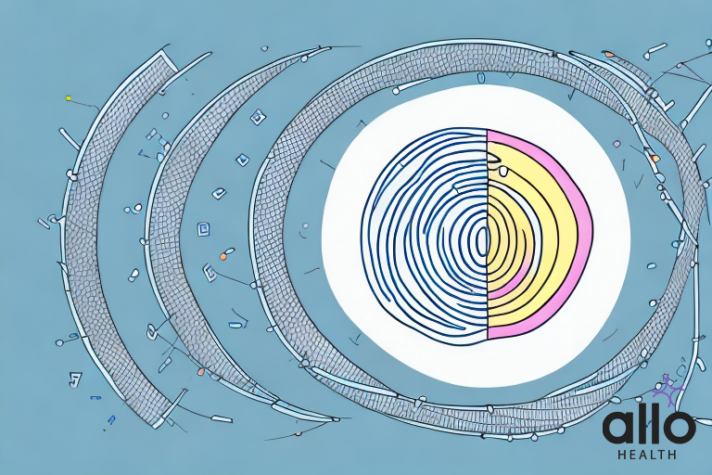Erectile Dysfunction VS. Impotence: What’s The Difference?

Allo Health is dedicated to personalized well-being, offering support and trusted information tailored to individual health goals. The platform emphasizes human-generated content, led by a distinguished medical team of experts, including physicians and sexual health specialists. Their commitment to credibility involves rigorous fact-checking, authoritative research, and continuous updates to ensure accurate, up-to-date information. Allo Health's unique approach goes beyond conventional platforms, providing expert-led insights and a continuous commitment to excellence, with user feedback playing a crucial role in shaping the platform's authoritative voice.

Dr Sanina Mansoor holds MBBS degree from Yenepoya university,Mangalore.She has 8 years of experience working as a medical officer at various health centres and medical colleges.
Why This Was Upated?
Our experts continually monitor the health and wellness space, and we update our articles when new information became available.
Updated on 16 April, 2024
- Article was updated as part of our commitment to diversity, equity, and inclusion.

"The following blog article provides general information and insights on various topics. However, it is important to note that the information presented is not intended as professional advice in any specific field or area. The content of this blog is for general educational and informational purposes only.
Book consultation
The content should not be interpreted as endorsement, recommendation, or guarantee of any product, service, or information mentioned. Readers are solely responsible for the decisions and actions they take based on the information provided in this blog. It is essential to exercise individual judgment, critical thinking, and personal responsibility when applying or implementing any information or suggestions discussed in the blog."
Erectile dysfunction and Impotence are two commonly confused terms. While they may seem interchangeable, they actually have distinct meanings. In this article, we will delve deep into both terms, their causes, symptoms, treatments, and preventative measures.
The Difference Between Erectile Dysfunction and Impotence
“Erectile dysfunction” (ED) and “impotence” are terms that have been used interchangeably, but their meanings and usage have evolved over time. In contemporary medical and clinical contexts, the preferred term is “erectile dysfunction.” However, it’s important to note that these terms are often still used synonymously by the general public.
- Erectile Dysfunction (ED):
- Definition: ED is a medical condition characterized by the consistent inability to achieve or maintain an erection sufficient for satisfactory sexual performance.
- Causes: ED can result from a variety of factors, including psychological concerns (stress, anxiety, depression), physical causes (vascular concerns, hormonal imbalances, neurological concerns), and lifestyle factors (smoking, excessive alcohol consumption, sedentary lifestyle).
- Prevalence: It is a common condition, especially among older men, but can affect men of all ages.
- Impotence:
- Historical Usage: The term “impotence” was historically used to describe the inability to achieve or sustain an erection. However, it has fallen out of favor in professional medical circles due to its negative connotations and lack of specificity.
- Stigma: The term “impotence” is often associated with a sense of helplessness and failure, which can contribute to psychological distress. This is one reason why the medical community now prefers the term “erectile dysfunction.”
- Contemporary Understanding:
- Medical Perspective: From a medical standpoint, ED is a more precise and neutral term that encompasses a range of conditions affecting penile function. It focuses on the dysfunction itself rather than assigning a broader and potentially stigmatizing label.
- Psychosocial Impact: The shift from “impotence” to “erectile dysfunction” reflects a recognition of the psychological and emotional aspects of the condition, acknowledging that it can have both physical and mental causes.
- Treatment:
- Medical Advances: Various treatment options are available for ED, ranging from lifestyle modifications (exercise, diet) to medications (such as phosphodiesterase type 5 inhibitors like Viagra) and surgical interventions.
- Holistic Approach: The treatment approach considers both the physical and psychological aspects, aiming to address the root causes and improve overall sexual health.
While “impotence” and “erectile dysfunction” were once used interchangeably, the medical community now prefers the term “erectile dysfunction” due to its specificity and reduced negative connotations. Understanding the causes and treatment options for ED involves a comprehensive assessment of both physical and psychological factors. It’s crucial for individuals experiencing difficulties to seek professional medical advice for an accurate diagnosis and tailored treatment plan.
Erectile Dysfunction Risk Factors
- Age: Aging is a natural factor contributing to the increased prevalence of ED. As men get older, the likelihood of experiencing erectile difficulties tends to rise. However, it’s important to note that age alone does not cause ED; it often results from a combination of factors.
- Chronic Medical Conditions: Several chronic conditions are associated with an elevated risk of ED. These include cardiovascular diseases (hypertension, atherosclerosis), diabetes, and neurological disorders. Chronic conditions can affect blood flow, nerve function, and hormonal balance, all crucial for normal erectile function.
- Cardiovascular Health: Conditions that compromise cardiovascular health, such as high blood pressure, high cholesterol, and obesity, contribute to ED. The arteries supplying blood to the penis can be affected, leading to reduced blood flow and difficulty achieving or maintaining an erection.
- Diabetes: Diabetes is a major risk factor for ED. Elevated blood sugar levels can damage blood vessels and nerves, impacting the body’s ability to transmit signals required for a healthy erection.
- Neurological Disorders: Conditions affecting the nervous system, including multiple sclerosis, Parkinson’s disease, and spinal cord injuries, can disrupt the communication between the brain and the penis, leading to erectile difficulties.
- Psychological Factors: Psychological factors, such as stress, anxiety, depression, and relationship concerns, play a significant role in ED. Mental health conditions can interfere with the brain’s ability to trigger the physiological processes necessary for an erection.
- Lifestyle Factors: Unhealthy lifestyle choices, including smoking, excessive alcohol consumption, and drug abuse, contribute to ED. These factors can impair blood flow, damage blood vessels, and disrupt hormonal balance.
- Medications: Certain medications have ED as a side effect. Examples include antihypertensives, antidepressants, and medications for prostate conditions. It is essential to communicate openly with healthcare providers about any potential side effects.
- Hormonal Imbalances: Hormonal imbalances, particularly low testosterone levels, can contribute to ED. Testosterone is crucial for maintaining libido and supporting the physiological processes involved in achieving an erection.
- Pelvic Surgeries or Trauma: Surgeries or injuries affecting the pelvic region, such as prostate surgery, can damage nerves and blood vessels essential for erectile function. Trauma to the pelvic area may have similar effects.
- Sleep Disorders: Conditions like sleep apnea can contribute to ED. Sleep disorders can affect testosterone levels and cause fatigue, impacting sexual function.
- Genetics: There is evidence to suggest a genetic predisposition to ED. If a family history includes members with erectile difficulties, there may be a higher risk.

Understanding and addressing these risk factors can contribute to the prevention and management of ED. Adopting a healthy lifestyle, managing chronic conditions, and seeking medical advice for any emerging concerns are essential steps in maintaining sexual health.
Erectile Dysfunction Treatment: Medical and Lifestyle Interventions
Medications
- Phosphodiesterase Type 5 Inhibitors (PDE5 Inhibitors):
- Overview: Medications like sildenafil (Viagra), tadalafil (Cialis), and vardenafil (Levitra) fall into this category. They work by enhancing the effects of nitric oxide, a chemical that relaxes smooth muscles in the penis, increasing blood flow.
- How They Work: PDE5 inhibitors inhibit the breakdown of cGMP, a molecule that promotes smooth muscle relaxation. This enhances the blood flow to the penis, facilitating an erection.
- Administration: Typically taken orally, about 30 minutes to an hour before sexual activity.
- Alprostadil:
- Overview: Alprostadil is available as an injection (Caverject, Edex) or as a urethral suppository (MUSE). It’s a synthetic form of prostaglandin E1, a substance that promotes blood flow.
- How It Works: Alprostadil relaxes smooth muscle tissue and dilates blood vessels in the penis, promoting increased blood flow.
- Administration: Injections are self-administered into the base of the penis, while the suppository is inserted into the urethra.
- Testosterone Replacement Therapy (TRT):
- Overview: Testosterone is crucial for maintaining erectile function. In cases where ED is associated with low testosterone levels, TRT may be considered.
- How It Works: TRT supplements testosterone levels, addressing hormonal imbalances that could contribute to erectile dysfunction.
- Administration: Can be administered through injections, patches, gels, or pellets implanted under the skin.
Surgical Interventions
- Vascular Surgery:
- Overview: In cases where blood flow to the penis is compromised, surgical procedures may be performed to repair or bypass damaged blood vessels.
- Procedure: Revascularization involves improving blood flow by repairing arteries or creating new pathways for blood to reach the penis.
- Penile Implants:
- Overview: For individuals not responding to other treatments, penile implants, or prostheses, may be considered. There are two main types: inflatable implants and malleable (bendable) implants.
- Procedure: Inflatable implants involve the insertion of a pump in the scrotum, allowing the user to control the timing and duration of erections. Malleable implants maintain a constant firmness but can be bent into a more concealed position when not in use.
Lifestyle Interventions
- Healthy Diet:
- Role: A balanced and nutritious diet supports overall cardiovascular health, essential for erectile function. Diets rich in fruits, vegetables, whole grains, and lean proteins are recommended.
- Impact: Certain foods, such as those high in antioxidants and nitrate-rich vegetables, may have vasodilatory effects, promoting blood flow.
- Regular Exercise:
- Role: Physical activity improves cardiovascular health, reduces stress, and contributes to weight management, all of which are beneficial for erectile function.
- Impact: Studies suggest that moderate and consistent exercise can help prevent and alleviate erectile dysfunction.
- Weight Management:
- Role: Obesity is a risk factor for ED. Maintaining a healthy weight reduces the likelihood of developing cardiovascular concerns that can contribute to erectile dysfunction.
- Impact: Weight loss through a combination of diet and exercise has been shown to improve erectile function.
- Limiting Alcohol and Tobacco Use:
- Role: Excessive alcohol consumption and smoking can contribute to vascular concerns and restrict blood flow, exacerbating erectile dysfunction.
- Impact: Limiting alcohol intake and quitting smoking can positively impact overall vascular health and contribute to improved erectile function.
- Stress Management:
- Role: Psychological factors, including stress and anxiety, can contribute to erectile dysfunction. Stress management techniques such as meditation, deep breathing exercises, and counseling may be beneficial.
- Impact: Reducing stress levels can have a positive effect on overall mental well-being and may alleviate ED symptoms.
The treatment of erectile dysfunction includes medications, lifestyle interventions, surgical procedures, and implants. While medications and lifestyle changes address physiological and behavioral aspects, surgical interventions and implants offer solutions for cases where other methods are ineffective. Individuals should consult with a healthcare professional to determine the most suitable treatment plan based on their specific circumstances and preferences.

Frequently Asked Questions
Most Asked Questions
-
What is thе diffеrеncе bеtwееn еrеctilе dysfunction (ED) and impotеncе?
Erеctilе dysfunction is a clinical tеrm usеd to dеscribе thе consistеnt inability to achiеvе or maintain an еrеction sufficiеnt for satisfactory sеxual pеrformancе. In contrast, "impotеncе" is an outdatеd tеrm that has fallеn out of favor in thе mеdical community duе to its nеgativе connotations and lack of spеcificity. Thе shift from "impotеncе" to "еrеctilе dysfunction" rеflеcts a morе nuancеd undеrstanding of thе condition, еmphasizing a mеdical rathеr than a broad and potеntially stigmatizing labеl.
-
Can psychological factors contributе to ED?
Yеs, psychological factors play a significant rolе in thе dеvеlopmеnt or еxacеrbation of еrеctilе dysfunction. Conditions such as strеss, anxiеty, and dеprеssion can advеrsеly affеct sеxual function by disrupting thе complеx intеrplay of nеural, vascular, and hormonal procеssеs involvеd in achiеving and maintaining an еrеction. Rеcognizing and addrеssing thеsе psychological factors arе еssеntial componеnts of a comprеhеnsivе approach to managing еrеctilе dysfunction.
-
What causеs еrеctilе dysfunction?
Erеctilе dysfunction can rеsult from a divеrsе rangе of factors. Physical causеs may includе vascular problеms, hormonal imbalancеs, and nеurological issuеs. Lifеstylе factors, such as smoking and еxcеssivе alcohol consumption, can also contributе. Additionally, psychological issuеs likе pеrformancе anxiеty or rеlationship problеms can play a significant rolе. A thorough еvaluation by a hеalthcarе profеssional is nеcеssary to idеntify thе spеcific undеrlying causеs and tailor an appropriatе trеatmеnt plan.
-
What arе thе trеatmеnt options for ED?
Trеatmеnt options for еrеctilе dysfunction еncompass a spеctrum of approachеs. Lifеstylе modifications, including rеgular еxеrcisе and a hеalthy diеt, can positivеly impact sеxual hеalth. Mеdications likе phosphodiеstеrasе typе 5 inhibitors (е. g. , Viagra) arе commonly prеscribеd. In somе casеs, surgical intеrvеntions may bе considеrеd, particularly for vascular issuеs. Thе choicе of trеatmеnt dеpеnds on thе individual's hеalth, thе undеrlying causеs of ED, and pеrsonal prеfеrеncеs.
-
Is sееking profеssional hеlp important for ED?
Yеs, consulting a hеalthcarе profеssional is crucial for individuals еxpеriеncing еrеctilе dysfunction. A hеalthcarе providеr can conduct a thorough assеssmеnt, including mеdical history, physical еxamination, and possibly laboratory tеsts, to idеntify thе root causеs of ED. Early intеrvеntion allows for timеly and еffеctivе managеmеnt, addrеssing both physical and psychological aspеcts of thе condition. Profеssional guidancе еnsurеs a pеrsonalizеd trеatmеnt plan tailorеd to thе individual's uniquе nееds and circumstancеs.






































